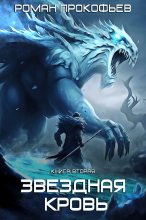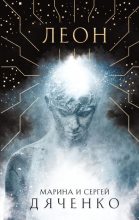- 1
- 2
- 3
- 4
- 5
- . . .
- последняя (99) »
Open the door for me.’ The children looked through the crack in the door and saw what looked like their grandmother, and so they opened the door, and the wolf came in the house and ate them. Do you understand this story, my Lord?”
Not the slightest bit.“Then maybe I’ve guessed right.”
First of all, the wolf wanted all along to enter the house and eat the children, correct?“Correct.”
It engaged in communication with the children, correct?“Correct.”
This is what’s incomprehensible. In order to achieve its own aims, it shouldn’t have communicated with the children.“Why?”
Isn’t it obvious? If there was communication between them, the children would have known that the wolf wanted to come in and eat them, and they wouldn’t have opened the door.Evans stayed silent for a while. “I understand, my Lord. I understand.”
What do you understand? Isn’t what I said obvious?“Your thoughts are completely exposed to the outside world. You can’t hide.”
How can thoughts hide? Your ideas are confusing.“I mean, your thoughts and memories are transparent to the outside world, like a book placed out in public, or a film projected in a plaza, or a fish in a clear fishbowl. Totally exposed. Readable at a glance. Er, maybe some of the elements I just mentioned are…”
I understand them all. But isn’t all that perfectly natural?Evans was silent again. “So that’s it…. My Lord, when you communicate face-to-face, everything you communicate is true. It’s impossible for you to cheat or lie, so you can’t pursue complicated strategic thinking.”
We can communicate over significant distances, not just face-to-face. The words “cheating” and “lying” are another two that we have had a hard time understanding.“What sort of a society is it when thought is completely transparent? What sort of culture does it produce? What sort of politics? No scheming, no pretending.”
What are “scheming” and “pretending”?Evans said nothing.
Human communication organs are but an evolutionary deficiency, a necessary compensation for the fact that your brains can’t emit strong thought waves. This is one of your biological weaknesses. Direct display of thought is a superior, more efficient form of communication.“A deficiency? A weakness? No, my Lord, you are wrong. This time you are totally wrong.”
Is that so? Let me think about it. It’s a shame you can’t see my thoughts.This time the interruption was longer. When twenty minutes had passed and no more text had appeared, Evans strolled from bow to stern, watching a school of fish leaping out of the ocean, tracing an arc on the surface that glittered silver under the starlight. Several years ago, he had spent some time on a fishing boat in the South China Sea investigating the effect of overfishing on coastal life. The fishermen called this phenomenon “the passing of dragon soldiers.” To Evans, they looked like text projected on the eye of the ocean. Then text appeared before his own eyes.
You are correct. Looking back at those documents, I understand them a little better.“My Lord, there’s a long road to travel before you arrive at a true understanding of human matters. I’m almost afraid that you’ll never be able to.”
Indeed, they are complicated. All I know now is why I didn’t understand them before. You are right.“My Lord, you need us.”
I am afraid of you.The conversation stopped. This was the last time that Evans received a message from Trisolaris. He stood at the stern watching the snow-white body of Judgment Day stretch off into the hazy night, like time slipping away.
Part I The Wallfacers
Year 3, Crisis Era
Distance of the Trisolaran Fleet from the Solar System: 4.21 light-years
It looks so old…. This was Wu Yue’s first thought as he faced Tang, the massive ship under construction in front of him, bathed in the flickering of electric arcs. Of course, this impression was simply the result of countless inconsequential smudges on the manganese steel plates of the ship’s nearly completed body, left behind by the advanced gas-shield welding used on the hull. He tried unsuccessfully to imagine how sturdy and new Tang would look with a fresh coat of gray paint. Tang’s fourth offshore fleet training session had just concluded. During that two-month session, Tang’s commanders, Wu Yue and Zhang Beihai, who was standing just beside Wu Yue, had occupied an uncomfortable role. Formations of destroyers, submarines, and supply ships were directed by battle group commanders, but Tang was still under construction in the dock, so the carrier’s position was either occupied by the training ship Zheng He or simply left empty. During the sessions, Wu Yue often stared vacantly at an empty patch of sea where the surface of the water, disturbed by crisscrossing trails left by passing ships, undulated uneasily, much like his mood. Would the empty spot ever be filled? he asked himself more than once. Looking now at the unfinished Tang, what he saw was not just age but the passage of time itself. It seemed like an ancient, giant, discarded fortress, its mottled body a stone wall, the shower of welding sparks falling from the scaffolding like plants covering the stones… like it was less construction than archeology. Afraid of pursuing these thoughts, Wu Yue turned his attention to Zhang Beihai next to him. “Is your father any better?” he asked. Zhang Beihai gently shook his head. “No. He’s just holding on.” “Ask for leave.” “I did when he first went to the hospital. Given the situation, I’ll deal with it when the time comes.” Then they went silent. Every social interaction between the two of them was like this. Where work was concerned they had more to say, of course, but something always lay between them. “Beihai, work isn’t going to be like it was. Since we’re sharing this position now, I think we ought to communicate more.” “We’ve communicated just fine in the past. Our superiors put us together on Tang, no doubt thanks to our successful cooperation aboard Chang’an.” Zhang Beihai laughed as he said this, but it was the sort of laugh that Wu Yue couldn’t read. Zhang Beihai’s eyes could easily read deep into the heart of everyone aboard the ship, be they captain or sailor. Wu Yue was entirely transparent to him. But Wu Yue could not read what was inside Zhang. He was certain that the man’s smile came from within him, but had no hope of understanding him. Successful cooperation does not equate to successful understanding. There was no question that Zhang Beihai was the most capable political commissar on the ship, and he was forthright in his work, exploring every last issue with complete precision. But his internal world was a bottomless gray to Wu Yue, who always felt like Zhang Beihai was saying: Just do it this way. This way’s best, or most correct. But it’s not what I really want. It began as an indistinct feeling that grew increasingly obvious. Of course, whatever Zhang Beihai did was always the best or most correct, but Wu Yue had no idea what he actually wanted. Wu Yue adhered to one article of faith: Command of a warship was a dangerous position, so the two commanders must understand each other’s minds. This presented Wu Yue with a knotty problem. At first, he thought that Zhang Beihai was somehow on guard, which offended Wu. In the tough post of captain of a destroyer, was anyone more forthright and guileless than he was? What do I have worth guarding against? When Zhang Beihai’s father had briefly been their superior officer, Wu Yue had spoken with him about his difficulties talking to his commissar. “Isn’t it enough for the work to be done well? Why do you need to know how he thinks?” the general had said, gently, then added, perhaps involuntarily, “Actually, I don’t know either.” “Let’s get a closer look,” Zhang Beihai said, pointing to Tang through the sparks. Then both their phones chirped at the same time: a text message recalling them back to their car. This usually meant an emergency, since secured communications equipment was only available in the vehicle. Wu Yue opened the car door and picked up the receiver. It was a call from an advisor at battle group HQ. “Captain Wu, Fleet Command have issued you and Commissar Zhang emergency orders. The two of you are to report to General Staff immediately.” “General Staff? What about the fifth fleet training exercise? Half the battle group is at sea, and the rest of the ships will join them tomorrow.” “I’m not aware of that. The order is simple. Just that one command. You can look at the specifics when you get back.” The captain and commissar of the still-unlaunched Tang glanced at each other, then had one of the rare moments throughout the years where their thoughts aligned: Looks like that patch of water will remain empty.* * *
Fort Greely, Alaska. Several fallow deer ambling along the snowy plain grew alert, sensing vibrations in the earth beneath the snow. Ahead of them, a white hemisphere opened. It had been placed there long ago, a giant egg half-buried beneath the ground, but the deer always felt it didn’t belong to this frozen world. The egg split open and issued forth thick smoke and flames, then, with a roar, it hatched a cylinder that accelerated upward, spurting flames from its bottom. The surrounding snowdrifts were thrown by the fire into the air, where they fell again as rain. When the cylinder gained enough height, the explosions that had terrified the deer were again replaced by peace. The cylinder vanished into the sky trailing a long white tail behind it, as if the snowscape was a giant ball of yarn from which a giant invisible hand had pulled a strand skyward. “Damn it! Just a few more seconds and I’d have confirmed a launch interrupt!” said Target Screening Officer Raeder as he tossed aside his mouse. Raeder was thousands of kilometers away in the Nuclear Missile Defense Control Room at the NORAD Command Center, three hundred meters beneath Cheyenne Mountain near Colorado Springs. “I figured it was nothing as soon as the system warning came up,” Orbital Monitor Jones said, shaking his head. “Then what’s the system attacking?” asked General Fitzroy. Nuclear Missile Defense was just one of the duties of his new position,- 1
- 2
- 3
- 4
- 5
- . . .
- последняя (99) »







